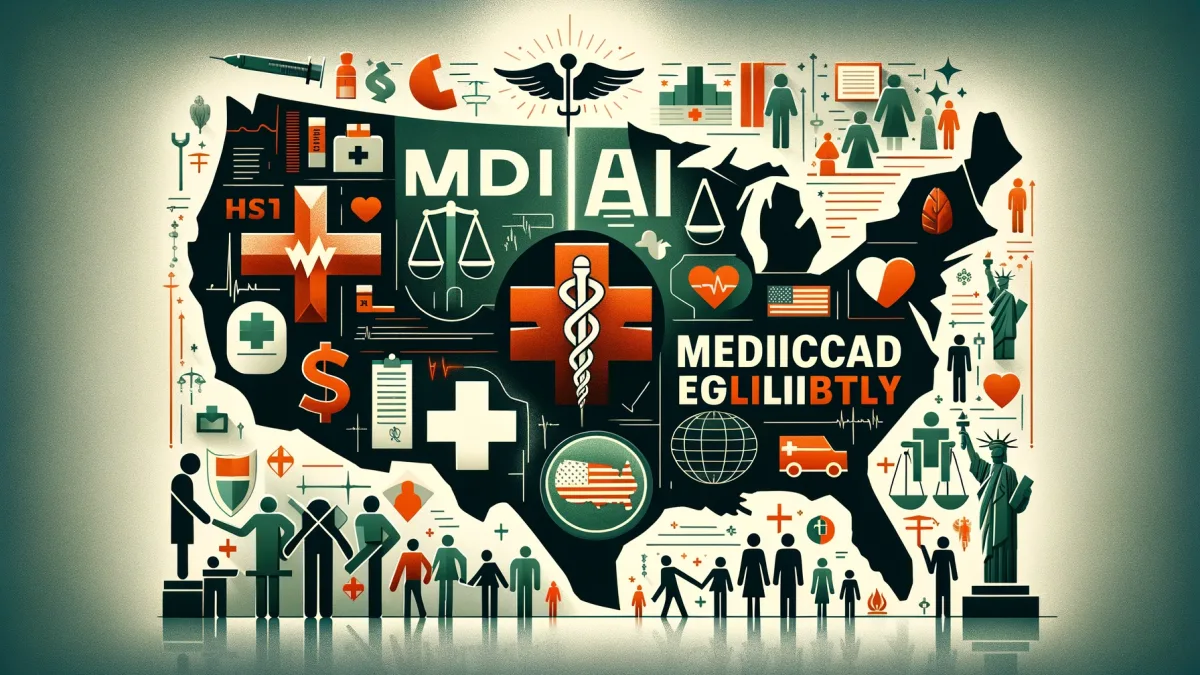Hey there! Today, we’re tackling a question that’s as pertinent as it is complex: Are illegal immigrants eligible for Medicaid in the United States? It’s a topic that sits at the crossroads of healthcare policy and immigration law, both of which are hotly debated arenas. So, let’s dive into this intricate issue with an open mind and a clear eye on the facts.
Understanding Medicaid: A Quick Overview
First off, let’s lay the groundwork by understanding what Medicaid is. Medicaid is a joint federal and state program that provides health coverage to millions of Americans, including eligible low-income adults, children, pregnant women, elderly adults, and people with disabilities. Medicaid operates within a framework set by federal guidelines, but states have considerable leeway in administering their Medicaid programs.
The Legal Landscape for Immigrants and Medicaid
When it comes to the eligibility of immigrants for Medicaid, the rules are tightly woven into the fabric of U.S. immigration and healthcare laws. Generally speaking, undocumented immigrants (often referred to as illegal immigrants) are not eligible for full Medicaid benefits. However, the waters get murkier when we delve into the details and exceptions.
Emergency Medicaid: A Lifeline
One critical exception to the rule is Emergency Medicaid. Federal law mandates that Emergency Medicaid be available to those who meet the income and residency requirements but does not consider immigration status. This means that if an undocumented immigrant faces a medical emergency, they may be eligible for coverage for that emergency condition, including labor and delivery for pregnant women.
CHIP and Pregnant Women: A Glimmer of Hope
The Children’s Health Insurance Program (CHIP) offers another sliver of eligibility for certain immigrant populations. Some states extend CHIP coverage to pregnant women, regardless of their immigration status, under a provision called “CHIP perinatal coverage.” This coverage can include prenatal care, labor and delivery, and postpartum care.
Deferred Action and DACA Recipients
Individuals granted deferred action status, excluding those under the Deferred Action for Childhood Arrivals (DACA), may be eligible for Medicaid if they meet other eligibility requirements. DACA recipients, on the other hand, are excluded from enrolling in Medicaid under federal guidelines, a point of contention and debate among policymakers and advocates.
State-Specific Programs: A Patchwork of Possibilities
Several states and the District of Columbia have used their funds to provide certain types of medical assistance to undocumented immigrants beyond what federal law mandates. These programs vary widely from state to state, both in terms of who is covered and what services are provided.
The Debate: Balancing Act Between Policy and Compassion
The question of Medicaid eligibility for illegal immigrants sits at the heart of a broader debate about immigration policy, healthcare access, and the role of government in providing social services. Proponents of expanding access argue that it’s a matter of public health and human compassion. Critics, however, raise concerns about the cost and the principle of providing taxpayer-funded benefits to individuals who are in the country illegally.
The Road Ahead: Policy, Proposals, and Public Opinion
Looking forward, the landscape of healthcare access for undocumented immigrants is likely to continue evolving. Legislative proposals at both the federal and state levels seek to expand or restrict access in various ways, reflecting the ongoing national conversation about immigration, healthcare, and the intersection of the two.
Final Thoughts: Navigating the Future Together
As we wrap up this exploration into Medicaid eligibility for illegal immigrants, it’s clear that the issue is far from black and white. It’s a complex interplay of legal standards, ethical considerations, and policy debates. What’s undeniable, though, is the importance of staying informed and engaged in the conversation, whether you’re a healthcare provider, policymaker, immigrant, or simply a concerned citizen.
Remember, the landscape of U.S. law and policy is always changing, and keeping abreast of the latest developments is key to understanding and navigating these challenging waters.









Leave a Reply